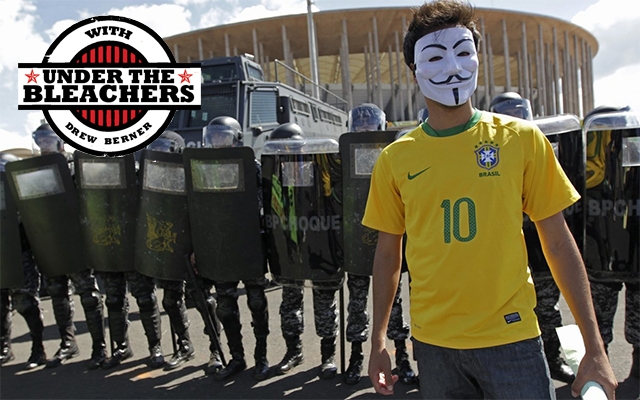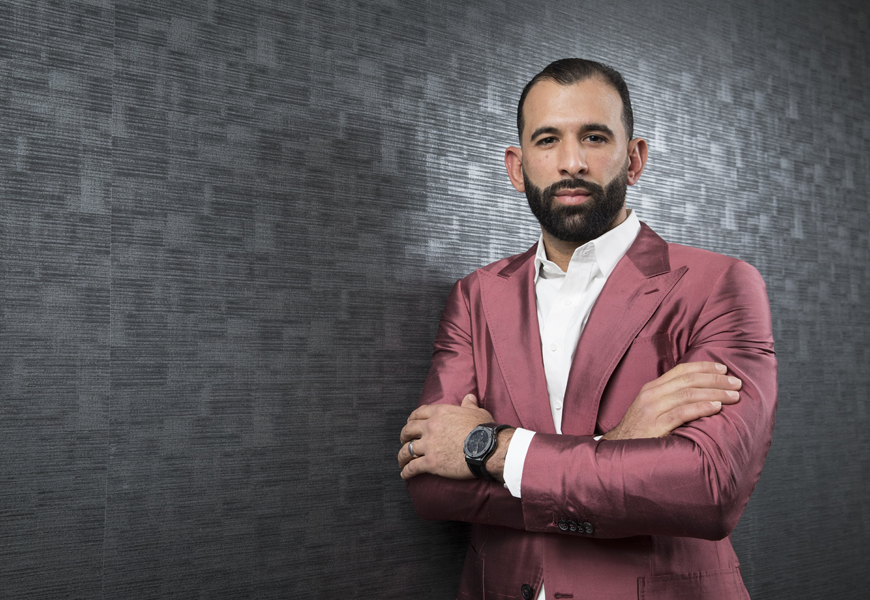Soccer is a beautiful game, but so much of what goes on in the shadows of FIFA, its governing body, is nothing short of ugly.
The 2014 World Cup opened Thursday in Brazil amid controversies both present and future. First came revelations earlier this week that Qatar’s ill-conceived bid for the 2022 World Cup had been secured with bribes; then concerns about Brazil’s facilities arose in the days leading up to Thursday’s tournament opener. And all this in the midst of protests by Brazilian citizens who consider the 2014 Cup a wasteful extravagance—and that evidence suggests aren’t wrong.
It’s one thing to spend billions on stadiums to host a month-long celebration of a nation’s favourite sport; it’s another to do so while the country suffers in poverty, unable to build or maintain schools and hospitals because of a supposed lack of public money.
But Brazil’s transgressions—it will also host the 2016 Olympic Summer Games, the only sporting spectacle that could rival the World Cup for wasteful opulence—are truly legion. Consider as its most egregious offense the $229-million stadium in Manaus: a 46,000-seat arena so remote it’s all but inaccessible by road, forcing the building materials to be shipped in on boats. The nearest local club draws about 1,000 fans per match, it’s in the middle of the rainforest, it’ll only host four games throughout the entire World Cup and its playing surface is already languishing. And, yes, it cost $229 million.
Brazil deserves much of the blame for how poorly things look for this year’s World Cup, but don’t let FIFA off the hook. International soccer’s governing body claims to be a non-profit while reportedly holding $1 billion in reserves, meanwhile it demands that all host nations exempt it from all taxes during the tournament—not only is the host responsible for footing the bill, it can’t collect a dime from the organization getting rich in the process. The financial benefits to the hosts range from an influx of tourism dollars to a potential increase in investment—all speculative and not nearly enough to balance the expenses incurred.
FIFA even strongarms hosts into changing or ignoring their laws, like Brazil’s prohibition of alcohol sales in soccer stadiums. During the World Cup, stadiums will sell beer to appease sponsor Anheuser-Busch InBev, even though the law was enacted to curb soccer-related violence. No matter how much it costs or who gets hurt, FIFA will always get paid.
And so will its members, apparently, as it was reported less than two weeks ago that one Qatari officially doled out some $5 million in kickbacks to secure his country’s bid for the 2022 World Cup. The revelations are so appalling even FIFA president Sepp Blatter admitted “it was a mistake” to accept Qatar’s bid and FIFA’s likely future president said he would support a vote to hold the 2022 World Cup elsewhere.
It could be challenging to look past the ugliness and enjoy the games, but just like with the Sochi Olympics most of us will find a way. We’ll see stories about police shooting rubber bullets and tear gas at protesters in Brazil, we’ll read about the 1,000 or so labourers who have already died building soccer stadiums in Qatar, but most of us won’t stop watching or cheering. And that’s OK—it isn’t the game that’s hurting anyone, it’s the profiteers at FIFA.












